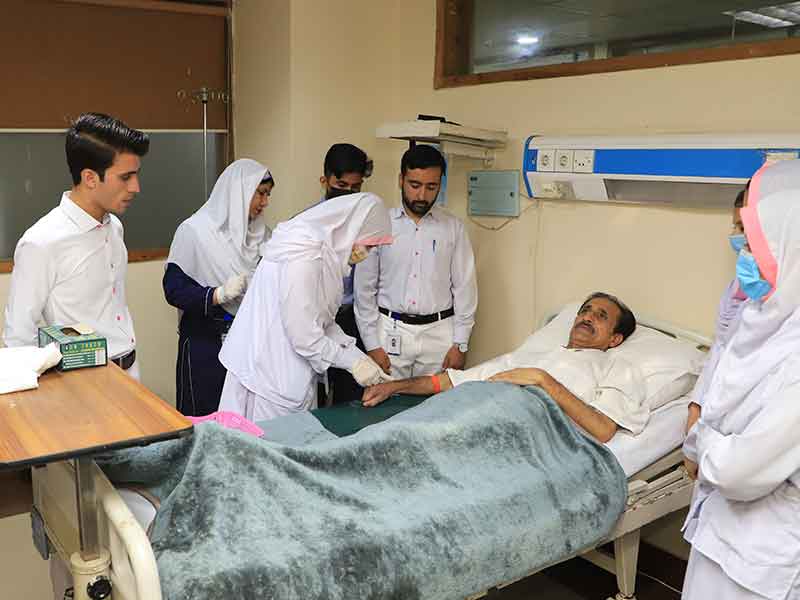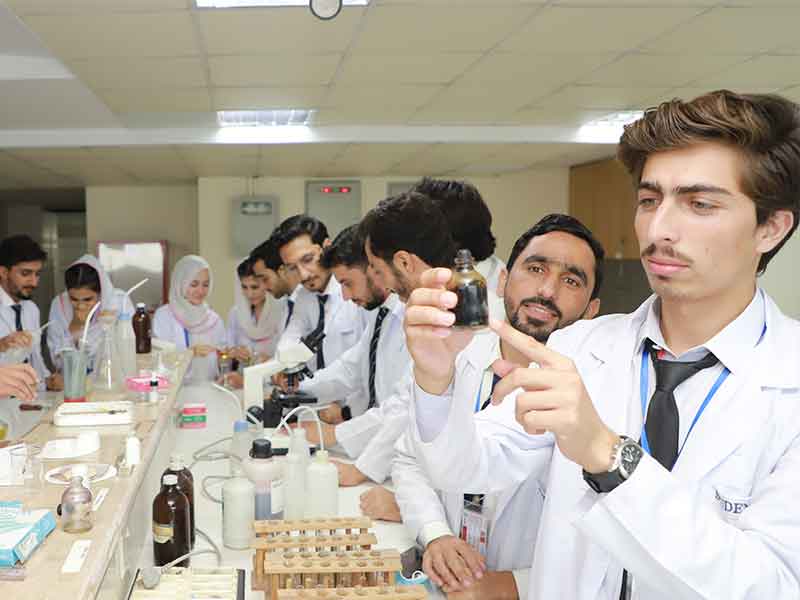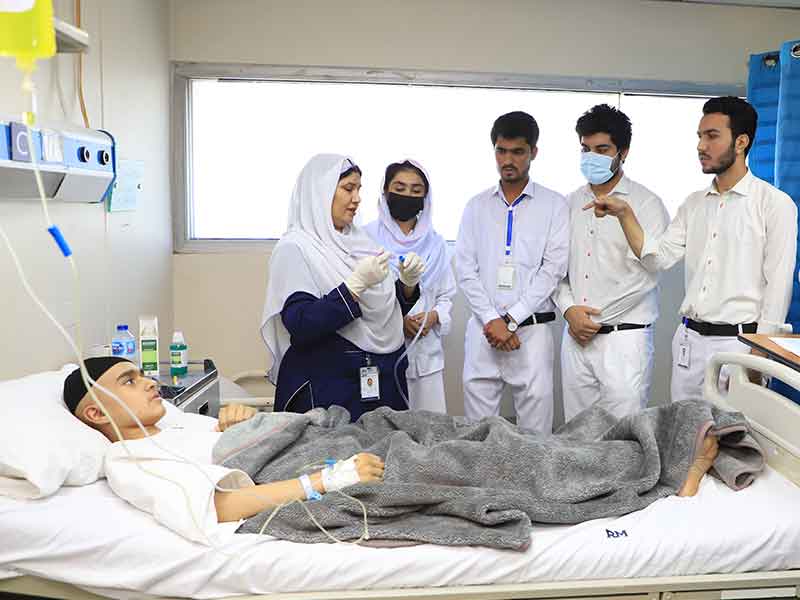Clinical Teaching Education
At Rehman College of Nursing (RCN), we go beyond traditional teaching methods to provide an unparalleled clinical education experience. Our cutting-edge Clinical Teaching Education (CTE) approach empowers nursing students to thrive in their careers and create a lasting impact on healthcare.
Our CTE approach includes individualised and group-based instructions in the clinical area, guided by experienced nurse educators, staff, and clinical nurse managers. Our dedicated nurse educators work closely with students, fostering critical thinking abilities, refining clinical skills, and instilling confidence. We promote collaborative group learning through team-based activities, case discussions, and simulated scenarios. Our esteemed faculty serve as mentors, providing expert guidance and supervision during clinical rotations.
They impart best practices, evidence-based care approaches, and ethical principles while offering comprehensive feedback. Our CTE approach integrates classroom learning with real-world clinical experiences, bridging the gap between theory and practice. We continuously improve our CTE practices, embracing technology-enabled learning experiences, simulation-based training, and inter-professional collaborations.
Through individualized instruction, collaborative group learning, expert guidance, and integration of theory and practice, RCN prepares nursing students to excel in their careers and make a meaningful impact on healthcare.
Enhancing CTE through engaging and impactful workshops

IV Cannulation
Mastering the skill of Intravenous (IV) cannulation is essential for nursing professionals. Our IV Cannulation workshop provides students with hands-on training in safely and accurately inserting IV cannulas. Under the guidance of experienced faculty, students practice techniques, understand different types of cannulas, learn about infection control measures, and gain proficiency in this critical nursing procedure.
Hand Washing Workshop
At RCN, we prioritize the importance of hand hygiene in healthcare settings. Our Hand Washing Workshop equips nursing students with essential knowledge and practical skills to perform proper hand hygiene techniques. Through interactive sessions and demonstrations, students learn the significance of hand washing in infection control, patient safety, and preventing the spread of diseases.


Scabies Workshop
Recognising the significance of dermatological conditions in nursing practice, our Scabies Workshop focused on educating students about the identification, management, and prevention of scabies infestations. Through case studies, hands-on activities, and expert guidance, students gain a comprehensive understanding of scabies, its clinical manifestations, and evidence-based interventions to provide optimal care to affected individuals.
Rabies Workshop
As part of our commitment to public health, we offered a Rabies Workshop that equiped nursing students with the knowledge and skills required to address the prevention and management of rabies infections. This workshop covers topics such as recognizing rabies symptoms, administering post-exposure prophylaxis, and educating patients and communities about rabies prevention measures. Through this workshop, students gain the confidence to play a proactive role in public health initiatives.
At RCN, these workshops are designed to enhance students’ practical skills, deepen their knowledge, and empower them to provide safe and effective patient care. Through interactive sessions, hands-on practice, and expert guidance, we equip our students with the competencies needed to excel in their nursing careers.




